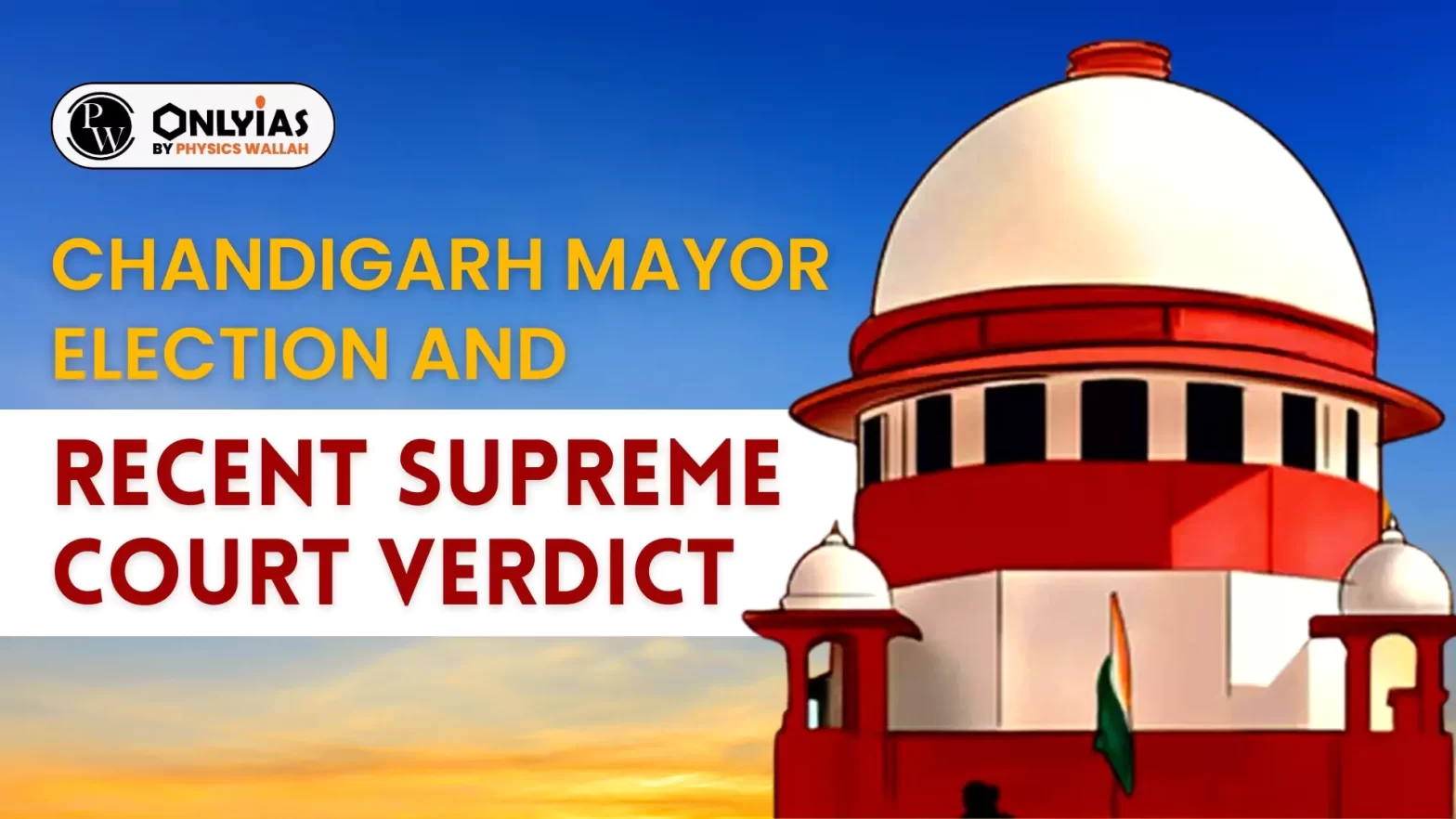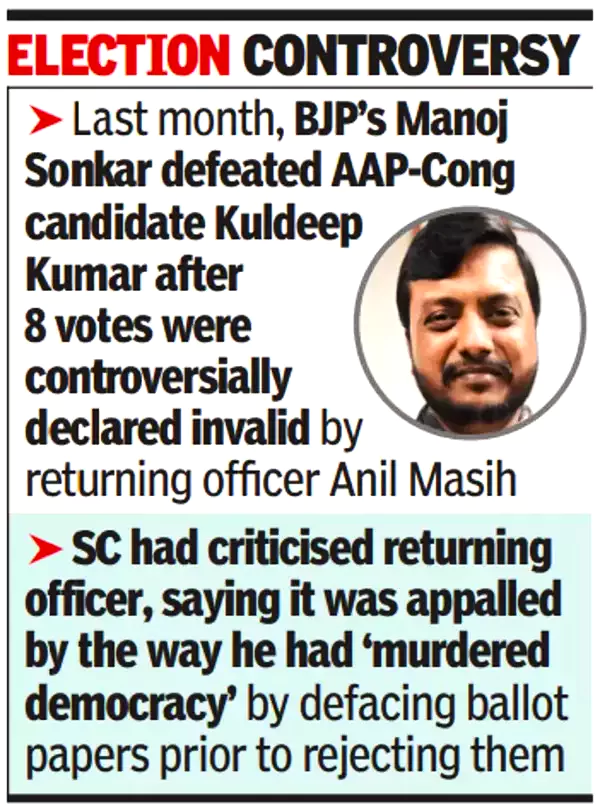![]() 22 Feb 2024
22 Feb 2024

This editorial is based on the news “Supreme Court declares AAP leader as Mayor of Chandigarh” which was published in the Hindu.
| Relevancy for Prelims: Indian Judiciary, Supreme Court, Indian Constitution, Judicial Activism, and Municipalities In Indian Polity.
Relevancy for Mains: Article 142 Of Indian Constitution: Provisions, Significance, Challenges, Criticism, and Way Forward. |
|---|

| Prelims PYQ (2019):
With reference to the Constitution of India, prohibition or limitations or provisions contained in ordinary laws cannot act as prohibitions or limitations on the constitutional powers under Article 142. It could mean which one of the following? (a) The decisions taken by the Election Commission of India while discharging its duties cannot be challenged in any court of law. (b) The Supreme Court of India is not constrained in the exercise of its powers by laws made by the Parliament. (c) In the event of grave financial crisis in the country, the President of India can declare Financial Emergency without the counsel from the Cabinet. (d) State Legislatures cannot make laws on certain matters without the concurrence of Union Legislature. Ans: (b) |
|---|
| Mains Question: The reservation of seats for women in the institutions of local self-government has had a limited impact on the patriarchal character of the Indian Political Process. Comment (15 marks, 250 words) |
|---|
| Must Read | |
| NCERT Notes For UPSC | UPSC Daily Current Affairs |
| UPSC Blogs | UPSC Daily Editorials |
| Daily Current Affairs Quiz | Daily Main Answer Writing |
| UPSC Mains Previous Year Papers | UPSC Test Series 2024 |
<div class="new-fform">
</div>